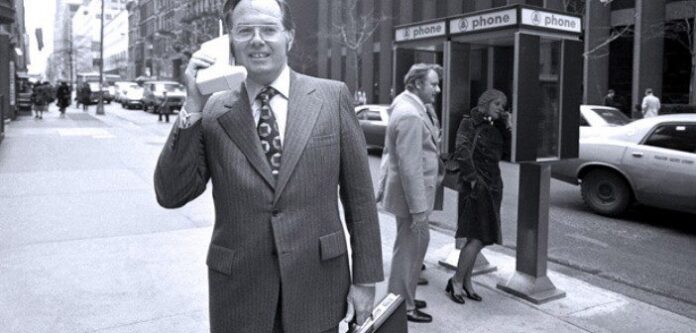Editor’s Note: RCR Wireless News goes all in for “Throwback Thursdays,” tapping into our archives to resuscitate the top headlines from the past. Fire up the time machine, put on the sepia-tinted shades, set the date for #TBT and enjoy the memories!
Figuring out the mysteries of the enterprise wireless interwebs
There seems little doubt the wireless Internet is going to be a reality, but what remains unclear is exactly who will use it, on what devices and using which technology. Many types of wireless devices are entering the marketplace with wireless Internet capabilities, using various standards and languages. Currently in domestic use is the Palm VII wireless personal digital assistant from Palm Computing using Web Clipping technology, Phone.com Inc.’s Hyperdata Markup Language-based solutions, Wireless Markup Language solutions and the expected release of full Wireless Application Protocol technology. MobileVillage.com L.L.C., an Internet portal company designed for corporate information technology buyers and solution providers, recently completed a survey that found 72 percent of corporate IT department decision-makers plan to deploy the Palm OS devices for their mobile technology needs. However, not all plan to extend wireless capabilities to those devices. When looking specifically at wireless access to corporate data, the study found increasing interest in WAP phones and other devices.
“Part of the reason for the Palm’s popularity is that it serves the corporate professional in a wide range of industries for their personal use at a low cost,” said Jon Covington, chief executive officer of MobileVillage. “However, the $100,000-plus unit sales that are being planned by some of our corporate consulting clients show that Palm is not the clear winner in the vertical markets. Smart phones and their related enterprise solutions are the hot ticket.” … Read more
A ‘click to talk’ internet?
As the wireless industry is ramping up efforts to convince customers to use their mobile phones for Internet access via Wireless Application Protocol technology, some are taking the concurrent step of preparing for voice access to the Net as well. The issue was the subject of an IDC conference last week in Denver called “Web Talk 2000:Opportunities to Mainstream Internet Voice.” What became clear throughout the course of the day is that voice user interfaces to the Internet are expected to complement text-based WAP service, not compete with them. Voice-enabled Internet services have many advantages over WAP, according to Dana Thorat, senior research analyst of residential broadband and telecommunications for IDC. They give end users greater accessibility to the Internet. Users can interact with the Web while driving, for instance, not to mention how much more intuitive it is than even the best text-entry system. In addition, it removes the equipment barrier to access the Internet for those who have no PC or browser-enabled phone. … Read more
PDAs > laptops
FRAMINGHAM, Mass.-According to first-quarter survey results from IDC’s Mobile User and Buyer ePanel program, 23 percent of mobile device users said they will buy a personal digital assistant during the next year, compared with 11 percent who said they plan to buy a notebook computer. “Users are willing to pay for the devices from their disposable income because of the productivity benefits the technology brings to their daily lives, whether it’s for business or personal applications,” said Diana Hwang, program manager of mobile research for IDC. The survey also showed that 42 percent of small-business users plan to use a smart phone during the next 12 months … Read more
The future of satellite is internet, not phones
CHESTERFIELD, Mo.-Referring to the failure of Iridium L.L.C.’s satellite phone service and the continued growth of OmniTracs’ Internet-based satellite tracking service, a report by Datacom Research Co. and Farrar & Associates concludes that the Internet, rather than telephone applications, is the future for satellite communications. “The Internet is creating myriad opportunities for satellites,” explained Sam Farrar, principal author of “Satellites in Cyberspace: Opportunities for Internet-based Satellite Ventures.” “Unfortunately, most of the industry is chasing small and often illusory satellite telephone markets. Satellite ventures that focus on Internet applications and employ innovative business models will be big winners.” … Read more
Gearing up for mobile commerce security
With concerns rising over the need for enhanced security in future wireless e-commerce, several firms in both the wireless and security industries launched efforts last week aimed at designing secure wireless networks. The largest initiative was that between leading phone manufacturers L.M. Ericsson, Motorola Inc. and Nokia Corp., which announced a joint effort to develop an open and common framework for secure mobile e-commerce transmissions. The three hope to use existing and emerging standards to build a framework for mobile e-commerce transmissions that all can use on a de facto basis. The open platform then would be available for integration on all mobile devices developed in the future. The three companies said they have invited representatives from the telecom, financial and information technology industries to help with the effort, as well as to expand on existing security initiatives. Cornerstone technologies to be used include Wireless Application Protocol security functions-such as Wireless Transport Layer Security and Wireless Identification Module-as well as public key infrastructure and other existing mobile payment schemes. … Read more
Where wireless users don’t use their phones
SAN FRANCISCO-A poll conducted by Wirthlin Worldwide, commissioned by online wireless retailer LetsTalk.com, found more than half of wireless phone users surveyed did not use their phones in movie theaters, restaurants or restrooms. The study also found more than half of those surveyed find it acceptable to use their phones while on public transportation, in the supermarket or while driving a car. … Read more
Check out the RCR Wireless News’ Archives for more stories from the past.

